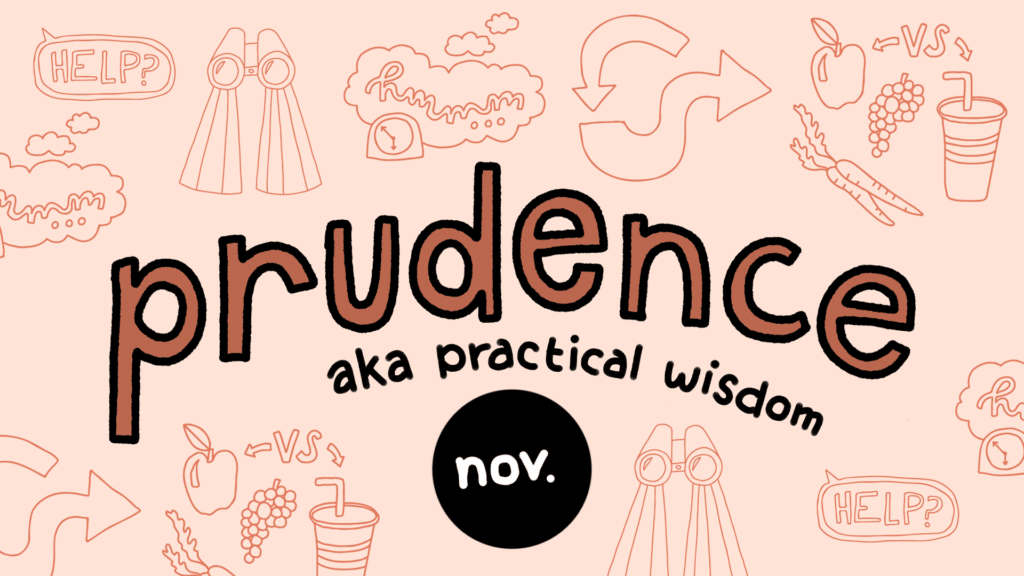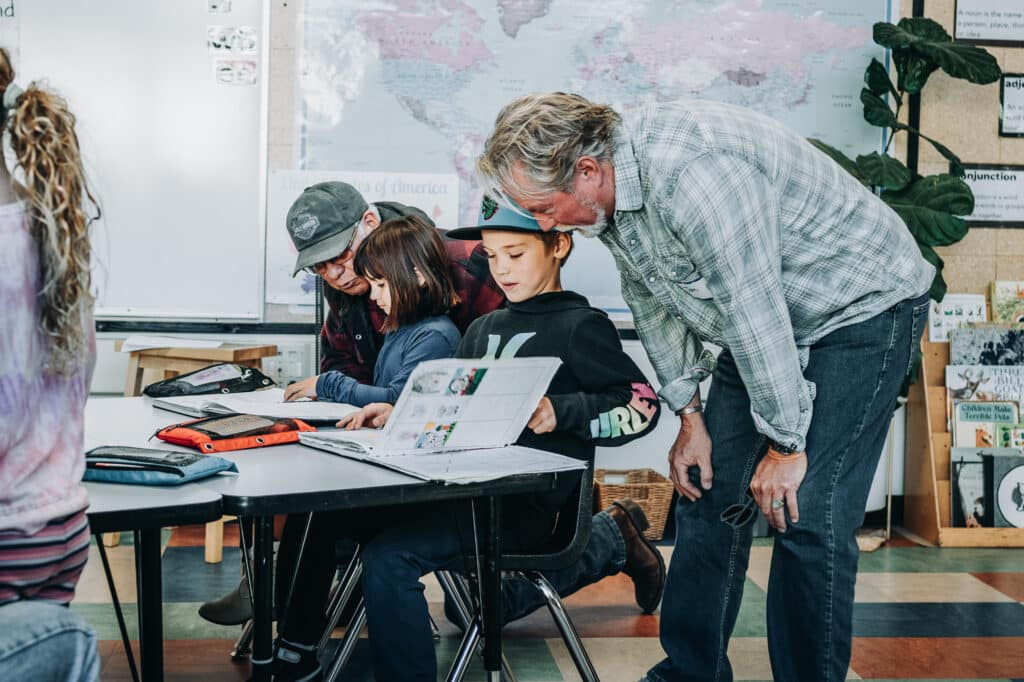
{image credit: Ed Schipul / CC BY-SA 2.0}
For our last book review of the year, Mrs. Burns has chosen a fitting title for summertime reading. We hope you’ve enjoyed this series this year – these reviews are an amazing resource!
Pedagogic Ponderings
Mrs. Burns’ Book Review Blog
Pedagogic Ponderings is a blog review of pedagogic (educational) books by our own Jenna Burns. After teaching History and Language Arts at SLOCA UMS for five years, Jenna is taking this year off of teaching to care for her new daughter, Julianna. But she is not taking a break from learning! She is seeking out the best books on education, reading them, pondering them, and reviewing them for us. In her blog she gives us a snapshot of the books and how their educational philosophies connect to what we are doing at SLOCA. We hope her blog helps you better understand classical education and our school.

Summer is the perfect time to rediscover play. Do you have the end-of-the-year blues? Play could be just what you need. “The opposite of play is depression,” explains Dr. Stuart Brown in his book, Play: How it Shapes the Brian, Opens the Imagination, and Invigorates the Soul (126). “When we stop playing, we start dying,” (73). If you don’t want to be depressed or dying, read this month’s blog and find out about: Mrs. Burns’ play personality, the brain eating sea-squirt, and how play can transform your life.
Dr. Stuart Brown in his book, Play, guides you through the process of taking your play history. This is the process of reflecting on what brought you joy as a child in order to reclaim play as an adult.
It took me longer than I expected to take my play history. Does any one else have surprisingly few memories of childhood? But after some thoughtful introspection I struck upon it, and I can sum up my play history in one single word: water. Ah, the fun I had in water as a child. I spent my summer days in my backyard pool. My siblings and I would race to jump in the water because, “Last one in is a rotten egg!” and no one wants to be a rotten egg. My fondest memories growing up center around swimming, canoeing, crabbing, boogie boarding, tubing, houseboating, and basically anything on, in, or near the water. I continued to gravitate toward water as I grew. In high school I was a lifeguard and swim instructor. Brian proposed on the cliffs of Montana de Oro. Together we learned how to scuba dive, and every vacation we have ever taken has always been to a place on the water. Yes, there is no doubt about it. Water is my play.

{image credit: Dani Alvarez / CC BY-NC-ND 2.0}
I chose Play to review because I wanted to learn how to encourage Julianna’s development through play. That is not what this book is about. It is about understanding and reintroducing play in your adult life. It encourages you to make play a value in your house, your work, your marriage, your friendships, and your parenting. Can I tell you, realizing it is important for me to play makes me want to giggle . . . to giggle and throw off my shoes and jump in a pool.
So, I dedicate this final blog of the year to our fabulous SLOCA parents, who have worked hard all year and who deserve to play this summer just as much as their kids do. May this give you permission and direction to bring play back into your life – not as another thing for which you have to make time and space – but as an attitude. May play start to become a way of life for you.
Play is an easy and quick read. Along with scientific studies, Brown provides anecdotal evidence of play in animals and humans. His book is relevant to a wide stretch of people: the home educator looking to make lessons more playful, the boss wanting to foster more creative and productive employees, the lonely adult seeking more fulfilling relationships, and so on. For myself, I found these three points from Brown’s book most helpful:
1. Play has purpose.
Brown sums up three of play’s purposes with, “Play creates new neural connections and tests them. It creates an arena for social interaction and learning. It creates a low-risk format for finding and developing innate skills and talents,” (49). In other words, play helps the brain develop, improves our social skills, and furthers our acquisition of skills. That is all very important, but it misses out on the heart and soul of play. The purpose of play is also to breath color into our lives, “Making [play] part of our daily lives is probably the most important factor in being a fulfilled human being,” (6).
 Brown uses an example from nature to illustrate the paramount importance of play. The sea squirt has a very tiny, primitive brain that, “helps it move selectively toward nutrients and away from harm,” (47). It spends its youth exploring the sea, but as an adult it permanently attaches itself to a comfy little nook, allowing the passing current to provide its nourishment. Now that this “couch potato of the sea” need not explore the world, it “digests its own brain,” (48). That’s right. It is a brain – eating, cannibalistic couch potato. I wonder what its final thought is? “Yum, my brain tastes delicious!” But I digress. The point is: “Either we grow and develop, or we waste away,” (48). Unlike most animals, humans are “designed to be lifelong players,” and, “If we stop playing, we share the fate of all animals that grow out of play. Our behavior becomes fixed. We are not interested in new and different things. We find fewer opportunities to take pleasure in the world around us,” (48, 71). Play has purpose. It nourishes the body, mind, and soul.
Brown uses an example from nature to illustrate the paramount importance of play. The sea squirt has a very tiny, primitive brain that, “helps it move selectively toward nutrients and away from harm,” (47). It spends its youth exploring the sea, but as an adult it permanently attaches itself to a comfy little nook, allowing the passing current to provide its nourishment. Now that this “couch potato of the sea” need not explore the world, it “digests its own brain,” (48). That’s right. It is a brain – eating, cannibalistic couch potato. I wonder what its final thought is? “Yum, my brain tastes delicious!” But I digress. The point is: “Either we grow and develop, or we waste away,” (48). Unlike most animals, humans are “designed to be lifelong players,” and, “If we stop playing, we share the fate of all animals that grow out of play. Our behavior becomes fixed. We are not interested in new and different things. We find fewer opportunities to take pleasure in the world around us,” (48, 71). Play has purpose. It nourishes the body, mind, and soul.
Don’t be a sea squirt!
{image credit: wikimedia commons}
2. Play is personal.
Gardening is one person’s play and another’s chore. Play is personal. One of my favorite parts of this book was reading about the eight play personality types. I’m the “Explorer.” I love going to new places (especially restaurants) as well as learning about new subjects, ideas, and discovering new books. Maybe you are the joker, competitor, or collector. Understanding your play personality and taking your own play history makes it easier to pursue activities that will bring you happiness. What is play to you?
3. Play is powerful.
 According to Brown, play has the power to reinvigorate not only your own life, but also your marriage and friendships: “Play is the cornerstone of all personal relationships,” (158). To test his theory, I busted out Jenga after a long day of chores. The baby was finally asleep and both Brian and I were maxed out and a little cranky. It didn’t start out very promising. Just setting up the game was a pain and I wondered if we shouldn’t just give up and watch T.V. But ten minutes into the game we were laughing, teasing, and making wagers. I won and have been calling him “Gorilla Hands” ever since.
According to Brown, play has the power to reinvigorate not only your own life, but also your marriage and friendships: “Play is the cornerstone of all personal relationships,” (158). To test his theory, I busted out Jenga after a long day of chores. The baby was finally asleep and both Brian and I were maxed out and a little cranky. It didn’t start out very promising. Just setting up the game was a pain and I wondered if we shouldn’t just give up and watch T.V. But ten minutes into the game we were laughing, teasing, and making wagers. I won and have been calling him “Gorilla Hands” ever since.
{image credit: Kelly Teague / CC BY 2.0}
Brown encourages us to make a, “conscious decision to take on a playful attitude,” (162) because, “When we do that and create a playful household, everything from education to chores will go better,” (80). I put this to the hardest test: I took up running. “I’m going to pretend it’s a really fun game,” I decided. With, “3 – 2 – 1 Blast Off!” cheers to Julianna each time I start, keeping track of my times, and focusing on the refreshing breeze on my cheeks, I can say it is almost, nearly, kind of, just about play.
Play is a powerful force of good. Harness it in your marriage, your household, your morning jog and watch it replace the doldrums with joy.
I hope I have convinced you of the importance of play in your adult life. But this is a blog about education so let’s talk about play at SLOCA.
Brown touches on the relationship between play and education. “Play is learning’s partner,” (101), he says, and, “People reach the highest levels of a discipline because they are driven by love, by fun, by play,” (143). Brown provides evidence that facts and skills learned through play are retained longer. But is play a traditional value of classical education? When puzzling over this (Brown does not address this point), I thought about how wrestling was a regular part of an ancient Greek’s education. Having taught second graders I can say boys love to wrestle, so that to me sounds like play has a place in classical education. But let’s take the question to a classical authority: Socrates. In Book VII of Plato’s Republic, Socrates promotes play: “Don’t use force to train the children in these subjects; use play instead. That way you’ll also see better what each of them is naturally fitted for,” (208). Here, Socrates himself recommends a playful approach to education!
Play is the kindling that helps us light the fires of a life-long love of learning in our children at SLOCA. In his book, Brown outlines the different types of play, and you can see each in action at SLOCA. Children memorizing chants with hand motions are engaged in body play. Object play can be found in abundance in Little Wonders. As students recite lines from Hamlet they are participating in storytelling play. Social play is in the friendly interactions among students and teachers. You might catch a glimpse of some rough and tumble play during recess. Imaginative play is the puppet theater in Latin class or the Black Plague simulation in high school science. When our 8th graders promote and our seniors graduate, we experience a kind of ritual play. I bet you could ask any SLOCA teacher for an example of play in his or her classroom and he or she could give you one, probably from that very week.
{photos taken from SLOCA’s Flickr site}
 Summer is a great time to make play a priority. What will you do to play today?
Summer is a great time to make play a priority. What will you do to play today?
{image source}
Brown, Stuart. Play: How it Shapes the Brain, Opens the Imagination, and Invigorates the Soul. New York: Avery, 2009. Print.
Perrin, Christopher. “Plato and Play.” Inside Classical Education. 6 May 2015. Web. 28 May 2015.
Plato, Republic. Trans. G.M.A. Grube. Indianapolis: Hackett, 1992. Print.

These thoughts are definitely an encouraging way to transition into the next season. We hope all of our readers will enjoy plenty of play this summer, both in activity and attitude, and harness that powerful force of good!
Our deepest thanks goes out to you, Mrs. Burns, for reading and reviewing each of the superb titles in this series for us. We appreciate your insight, inspiration, humor, and personal connection through these blog posts!
Other reviews in this series:
The Read-Aloud Handbook by Jim Trelease
Ten Ways to Destroy the Imagination of your Child by Anthony Esolen
The Well-Trained Mind by Susan Wise Bauer and Jesse Wise
The Core by Leigh A. Bortins
How to Teach Your Children Shakespeare by Ken Ludwig
Climbing Parnassus by Tracy Lee Simmons
Last Child in the Woods: Saving our Children from Nature-Deficit Disorder by Richard Louv
SLO Classical Academy is not affiliated with any of the above mentioned websites or individuals.












